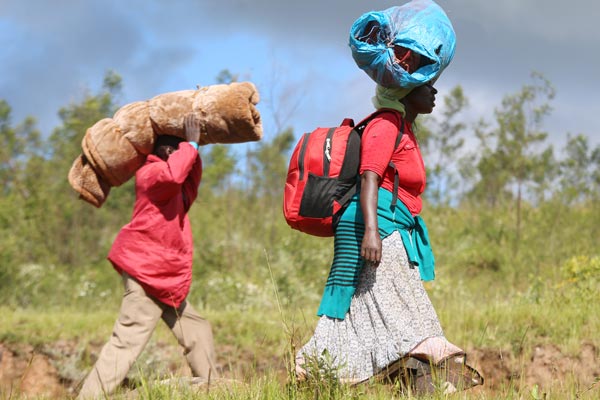
By Style Reporter
A local non-governmental organisation, Africa Innovation Trust (AIT), says government should come up with strategies and policies that mitigate or manage corruption risks in humanitarian operations in areas that were recently affected by Cyclone Idai.
AIT, which was founded on the premise of growing the technology edge in a mainstream way of life, has joined the growing chorus from Zimbabweans who are calling for good practices in humanitarian efforts in Chipinge and Chimanimani in Manicaland province as well as Bikita and Gutu in Masvingo province.
Hundreds of people died while several families were left homeless, which prompted the need for humanitarian relief.
However, recent reports of diversion and corruption have been one of the fundamental quandaries facing humanitarian assistance in the affected areas.
Last week the media was awash with reports that youths from the ruling Zanu-PF party had taken over relief aid distribution, especially food in Chimanimani district.
Corruption occurs at all levels in both the public and private sectors, and is a visible and expected form of behaviour in the country. Zimbabwe is the 160 least corrupt nation out of 175 countries, according to the 2018 Corruption Perceptions Index compiled by Transparency International.
Corruption Rank in Zimbabwe averaged 123,48 from 1998 until 2018, reaching an all-time high of 166 in 2008 and a record low of 43 in 1998.
- Chamisa under fire over US$120K donation
- Mavhunga puts DeMbare into Chibuku quarterfinals
- Pension funds bet on Cabora Bassa oilfields
- Councils defy govt fire tender directive
Keep Reading
“The reports of corruption and diversion of humanitarian aid in Chimanimani should not be dismissed, but government should come up with ways and mechanisms that mitigate corruption risks in the affected areas,” AIT programmes officer Taurai Mafundikwa.
“We encourage people to use the mobile application ICU ‘I See You’ on Android, iOS, and Windows devices, downloaded ‘free’ to report via [text, image, audio and video] on corruption of humanitarian aid.”
Mafundikwa said AIT delivers tools and platforms that allow the public to report on corruption.
On Wednesday Alick Macheso, the humanitarian ambassador of the Zimbabwe Red Cross Society, urged people to refrain from “stealing” relief aid meant for Cyclone Idai victims in Manicaland and Masvingo provinces.
Mafundikwa said technological innovation has the potential to tackle key issues in society, including corruption.
“By utilising advancements in technology we are joining hands with the government and other relief organisations that are using other means to tackle corruption and diversion of relief aid in an effective manner,” he said.
In its fight against corruption, AIT has come up with a multi-pronged strategy that includes a clean-up campaign running under the banner Corruption-PFee Mubin.











